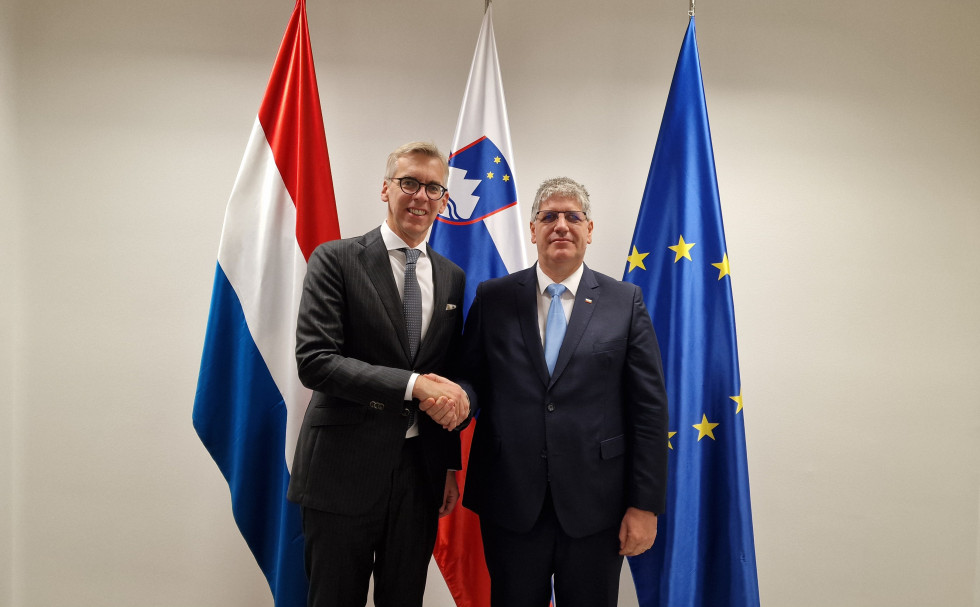Meeting of the Slovenian and Luxembourg Ministers of the Interior

Ministers Boštjan Poklukar and Leon Gloden shake hands | Author Ministrstvo za notranje zadeve
They discussed the current issues in the field of home affairs and the strengthening of relations between the ministries and polices forces of both countries in a constructive and friendly spirit.
The ministers agreed that the strategic priorities at level of the European Union and the political guidelines of the President of the European Commission were ambitious and, above all, in line with the work and achievements of the previous interinstitutional cycle. In this context, Minister Poklukar welcomed the fact that the guidelines also reflect the increased interest in all aspects of internal security.
The ministers also talked about the Schengen area and both expressed their support to the full membership of Bulgaria and Romania. Although at the moment Schengen is not functioning as intended, both countries should be admitted to the Schengen area, as they have been meeting all the necessary criteria for a very long time. For Slovenia, the resilience of the external borders is essential for good functioning of the Schengen area. Therefore, Member States must take all appropriate measures at their external borders to ensure quality border controls and effective external border surveillance. To be able to do so, they should receive adequate support through EU funds and additional training for border guards. European integrated border management is a shared responsibility of both Member States and the European Border and Coast Guard Agency (Frontex).
They also discussed enhanced cooperation with our partners in the region. There should be continued reminders to our partners in the Western Balkans of the importance of harmonising their visa policies so that their airports do not serve as hubs for irregular migration to the EU. The ministers agreed that this issue should be constantly raised at the level of the European Union so that the European Commission will take a dialogue approach with the countries of the Western Balkans.
In order to tackle migration, continued efforts must be invested to combat smuggling along all migration routes. It is not only migrants that enter our country irregularly through the Western Balkan migration route, but also the illegal trade in arms, drugs and other forms of organised crime. The ministers agreed to step up police cooperation in this area. The work and support of Europol is also of highly valuable for both countries in this respect. In this context, they discussed the Operational Task Force Zebra, coordinated by Croatia and operating in the Western Balkans, which Minister Poklukar invited his Luxembourg colleague to join.
As regards migration, the ministers also called for a stronger European Union's return policy. For Slovenia, the return of foreigners who do not fulfil the conditions for residence, while respecting human rights, is one of the fundamental aspects of a comprehensive and credible EU migration policy. Slovenia and Luxembourg supported the Austrian and Dutch non-paper to the European Commission for a new legislative proposal to make the returns of migrants who are not eligible to stay in the EU to their countries of origin more effective. According to Minister Poklukar, this will be one of the key challenges for the new European Commission.
They also exchanged experiences on the preparation of the national implementation plan for the Pact on Migration and Asylum. Poklukar said that some procedures would have to be speeded up in the implementation of the legislation, and expressed optimism that despite the many challenges in this area we will complete the implementation within the planned timeline.
The ministers also exchanged good practices in the area of policing. They called for enhanced cooperation between the two police forces, in particular in the area of money laundering and illicit financial flows.

